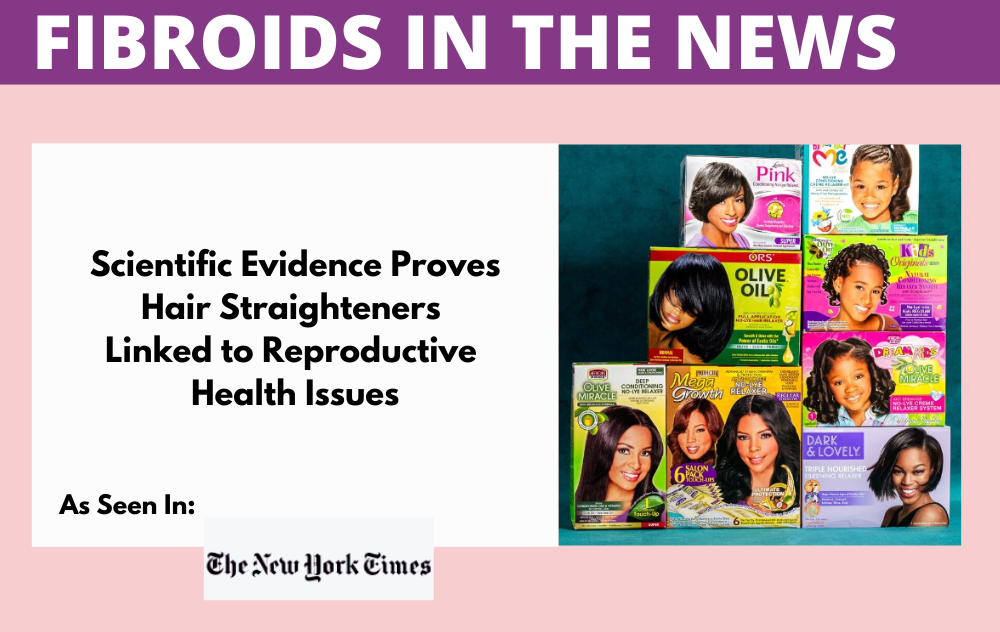
They’ve been linked to reproductive disorders and cancers. The New York Times asks “Why are they still being marketed so aggressively to Black women?
An article in the New York Times reveals that the research about hair relaxers has finally begun to bear fruit: A robust body of scientific evidence has now shown that straighteners and other hair products marketed to Black girls and women have been linked to endocrine-disrupting substances associated with the early onset of menstruation and many of the reproductive-health issues that follow, from uterine fibroids, preterm birth and infertility to breast, ovarian and uterine cancer. Many of these hormone-health-related problems are more common in Black women than in other women, including an aggressive form of breast cancer that contributes to a death rate from the disease that is 28 percent higher than the rate for white women.
The evidence took a drastic turn in October 2022 when the Sister Study, which was led by the National Institute of Environmental Health Sciences and followed a cohort of nearly 34,000 women, found that those who frequently used chemical hair-straightening products, a majority of whom were Black women, were two and a half times as likely to develop uterine cancer as those who did not use the products. Uterine cancer is the most common cancer of the female reproductive system, and the most aggressive subtypes have been on the rise since 2000 — especially among Black women.
The Sister Study, and several studies that followed, including work from James-Todd’s lab, represents a significant step forward, offering compelling scientific evidence of what has been long suspected. Over the past year and a half, this research has prompted lawsuits involving nearly 9,000 plaintiffs across the country and at least the promise of new action from the federal government.
If and when the F.D.A. removes formaldehyde from relaxers, that ban would not address the fact that the products most often used by Black women remain vastly underregulated and, until recently, insufficiently studied. Many of the substances they contain are prohibited in other countries. The European Union regulates more than 1,300 ingredients for use in cosmetics; the F.D.A. prohibits or restricts only nine ingredients that have been proved harmful to human health. In the United States, manufacturers, not the government, are nominally responsible for ensuring product safety. Chemical relaxers and other beauty products are marketed similarly in Europe and the United States, though they contain different active ingredients given Europe’s much stricter regulation. In fact, hair relaxers marketed to children in the United States have been found to contain the highest levels of five of the chemicals prohibited in the European Union.
Under the lax oversight by the American government, even the package labeling can’t be trusted. A 2018 scientific report conducted by Silent Spring Institute, an environmental-health research organization, was built on a list supplied by James-Todd of 18 different hair products marketed to and used by Black women; Silent Spring found dozens of chemicals that can disrupt hormones — but 84 percent of the toxic ingredients weren’t listed on the packaging. Several studies have found higher levels of endocrine-disrupting chemicals in the urine of Black women compared with that of white women.
This means that even as the evidence is increasingly harder to ignore or deny, consumers remain shockingly unprotected, leading to an entirely preventable continuing public-health crisis. Most of the studies have been published in science journals that never reach the general public. Many Black people have quietly wondered for years whether hair relaxers were safe, but burning scalps and even hair loss have been normalized as the price of desirably straight hair.
For more information, read the entire article here.







